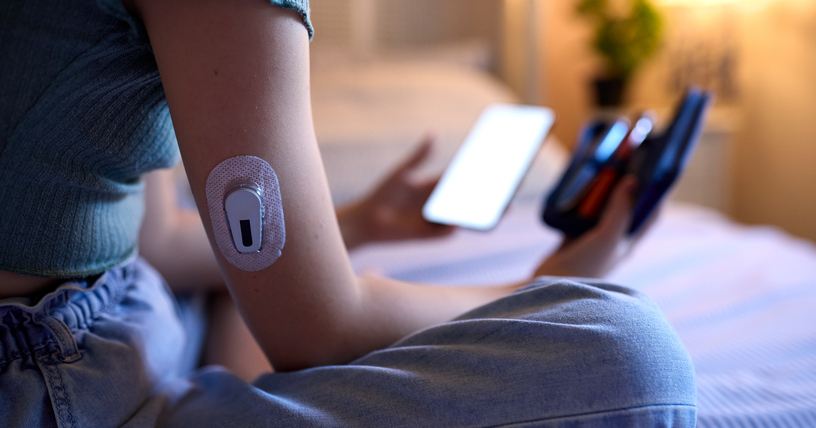While women may have a different doctor for gynecological health, the reality is that no part of a person’s health exists in a vacuum. It’s not uncommon for one menstrual condition to trigger a heart condition or a mental health condition.
Those who live with polycystic ovarian syndrome (PCOS) know this plight too well. PCOS comorbidities (or adjacent conditions) stretch across various parts of a person’s physical and mental health.
PCOS, plus its comorbidities, can make it feel like you’re constantly underwater trying to manage the ups and downs of your physical and mental health. Those who live with PCOS often have a slew of symptoms that serve as red flags that they may be struggling with the menstrual health condition in the first place.

What is PCOS?
According to the Office on Women’s Health, about 5-10% of women as young as 15 have polycystic ovarian syndrome (PCOS). The menstrual condition is known for causing an imbalance in reproductive hormones, which can lead to symptoms like skin tags, irregular cycles, too much hair, weight fluctuations, or really painful acne.
Those hormonal fluctuations and ongoing symptoms can make it harder for someone to optimize other aspects of their health, too. For instance, while someone may put all their effort into maintaining a healthy weight, their unmanageable hormone fluctuations may make it harder to reach those goals independently.
What conditions are considered comorbidities with PCOS?
Most commonly, those with PCOS may also live with secondary conditions that may tie back to a person’s sleep, fertility, mental health, or physical health.
1. Infertility
One of the most commonly cited PCOS comorbidities is infertility. Since PCOS is a condition grounded in hormonal imbalances, this ties back directly to ovarian health, which is the starting point of a full-term pregnancy. Women with PCOS may not ovulate as regularly or may have a difficult time conceiving because it’s harder to track their cycle, thanks to how irregular they are.
2. Depression and anxiety
Studies have shown that women with PCOS have higher rates of depression and anxiety. Everything from the hormonal rollercoaster that women are on every month to the added stress of managing one more multiple conditions ultimately takes a toll.
3. Eating disorders
Similar to more openly discussed mental health conditions like depression and anxiety, women who live with PCOS are also at higher risk of developing eating disorders like bulimia or disordered eating. The cultural conversations around PCOS often tie what a woman is (or isn’t eating) to her success in managing the condition, which may add stress and tension to anyone’s relationship with food and their body.
4. Sleep apnea
According to the Office of Women’s Health, those with PCOS may also struggle with a sleeping condition known as sleep apnea. Sleep apnea is when your sleep is interrupted due to hitches in your breath.

5. Diabetes
The Office of Women’s Health also notes that more than half of the women with PCOS will also have either prediabetes or diabetes before they turn 40. One of the most common treatments for PCOS is diabetes medicine, which can help lower insulin resistance.
6. High blood pressure and heart disease
According to Johns Hopkins Medicine, women are also twice as likely to experience a heart-related event, like a stroke or heart attack.
If you suspect that your PCOS is causing a second condition, the best thing you can do is talk to your doctor. Note your symptoms or how your day-to-day life is impacted, and take those notes into your next visit. Walking in prepared can help you feel more confident as you tread potentially new waters toward a different diagnosis.
Vivian Nunez is a writer. Her award-winning Instagram community has created pathways for speaking about mental health and grief. She hosts the podcast, Happy To Be Here, and has been featured by Spotify, Instagram, Netflix, CBS This Morning, Oprah! The Magazine, and more. You can find Vivian @vivnunez on Instagram/TikTok and her writing on vivnunez.substack.com.

















%20Health%20&%20Household.png)




